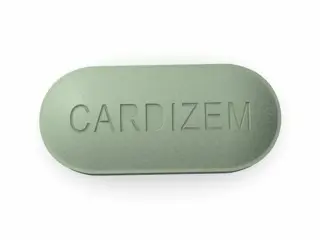| Package | Dosage | Price | Price per Dose | |
|---|---|---|---|---|
| Dosage: 30mg | ||||
| 360 pill | 30mg | €237.36 | €0.66 | |
| 270 pill | 30mg | €186.83 | €0.69 | |
| 180 pill | 30mg | €132.78 | €0.74 | |
| 120 pill | 30mg | €98.70 | €0.82 | |
| 90 pill | 30mg | €79.90 | €0.88 | |
| 60 pill | 30mg | €57.57 | €0.95 | |
| 30 pill | 30mg | €30.54 | €1.02 | |
| Dosage: 60mg | ||||
| 360 pill | 60mg | €325.50 | €0.90 | |
| 270 pill | 60mg | €247.94 | €0.92 | |
| 180 pill | 60mg | €166.86 | €0.93 | |
| 120 pill | 60mg | €113.98 | €0.95 | |
| 90 pill | 60mg | €90.47 | €1.00 | |
| 60 pill | 60mg | €62.27 | €1.05 | |
| 30 pill | 60mg | €34.07 | €1.12 | |
| Dosage: 90mg | ||||
| 360 pill | 90mg | €481.79 | €1.34 | |
| 180 pill | 90mg | €251.47 | €1.40 | |
| 120 pill | 90mg | €170.38 | €1.42 | |
| 90 pill | 90mg | €133.95 | €1.49 | |
| 60 pill | 90mg | €94.00 | €1.56 | |
| 30 pill | 90mg | €50.52 | €1.68 | |
| Dosage: 120mg | ||||
| 360 pill | 120mg | €533.50 | €1.48 | |
| 270 pill | 120mg | €408.93 | €1.52 | |
| 180 pill | 120mg | €279.67 | €1.55 | |
| 120 pill | 120mg | €195.06 | €1.62 | |
| 90 pill | 120mg | €153.93 | €1.70 | |
| 60 pill | 120mg | €109.28 | €1.82 | |
| 30 pill | 120mg | €68.15 | €2.27 | |
| Dosage: 180mg | ||||
| 270 pill | 180mg | €584.03 | €2.16 | |
| 180 pill | 180mg | €399.53 | €2.22 | |
| 120 pill | 180mg | €269.09 | €2.24 | |
| 90 pill | 180mg | €212.69 | €2.36 | |
| 60 pill | 180mg | €150.40 | €2.51 | |
| 30 pill | 180mg | €82.25 | €2.75 | |

Diltiazem Description
Introduction to Diltiazem
Diltiazem is a medication commonly prescribed to manage various cardiovascular conditions. It belongs to a class of drugs known as calcium channel blockers. This medication works by relaxing the muscles of the heart and blood vessels, which helps to lower blood pressure and control other heart-related issues. Diltiazem is available in different forms, including tablets and extended-release formulations, making it versatile for various treatment plans.
Uses and Medical Benefits
Most notably, Diltiazem is used to treat hypertension, or high blood pressure. Proper management of blood pressure can reduce the risk of serious health problems such as stroke, heart attack, and kidney disease. Additionally, it is effective in controlling angina pectoris, a condition characterized by chest pain caused by reduced blood flow to the heart. For patients with arrhythmias, especially some types of supraventricular tachycardia, Diltiazem helps to regulate the heart’s rhythm. Its ability to slow down the heart rate and dilate blood vessels improves overall heart function and reduces strain.
How to Take Diltiazem
The medication should be taken precisely as prescribed by a healthcare professional. Diltiazem tablets are usually taken orally, with or without food, depending on the specific formulation and doctor’s instructions. It is important not to crush or chew extended-release capsules to ensure proper release and absorption. Regular dosing at the same time each day helps maintain steady medication levels in the body, optimizing its effectiveness. Patients should not alter the dosage or stop the medication without medical consultation.
Potential Side Effects
While Diltiazem is generally well-tolerated, it can cause side effects in some people. Common reactions include dizziness, headache, flushing, or swelling of the ankles and feet. Some patients may experience gastrointestinal symptoms such as nausea or constipation. Serious but rare side effects can occur, including irregular heartbeats or allergic reactions like rash or swelling of the face and throat. Monitoring and reporting any unusual symptoms to a healthcare provider is crucial for patient safety.
Precautions and Interactions
Before starting Diltiazem, it is essential to disclose any pre-existing health conditions such as heart failure, liver disease, or electrolyte imbalances. Certain medications may interact adversely with Diltiazem, including other blood pressure drugs, heart rhythm medicines, or medications that affect liver enzymes. Combining Diltiazem with alcohol can increase side effects like dizziness or low blood pressure. Careful medical supervision ensures that the medication’s benefits outweigh potential risks.
Conclusion
Overall, Diltiazem is an effective option for managing high blood pressure, angina, and certain heart rhythm disorders. Its ability to relax blood vessels and slow down the heart rate contributes to its therapeutic effects. Proper use, adherence to prescribed dosages, and regular medical check-ups are essential for achieving optimal health outcomes. Patients should always communicate openly with their healthcare providers about any concerns or side effects experienced during treatment. By doing so, they can ensure safe and effective management of their cardiovascular health with Diltiazem.
